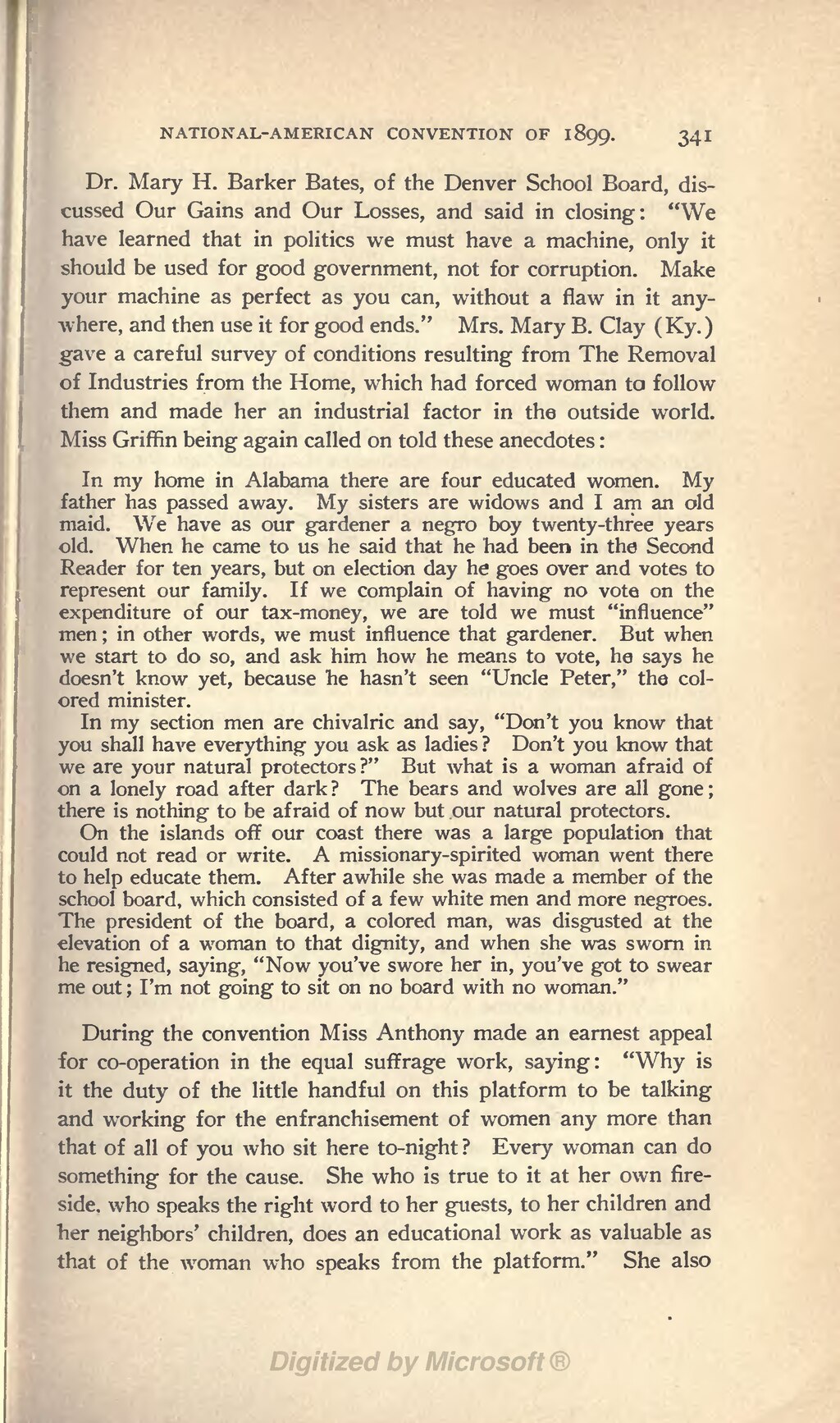Dr. Mary H. Barker Bates, of the Denver School Board, discussed Our Gains and Our Losses, and said in closing: "We have learned that in politics we must have a machine, only it should be used for good government, not for corruption. Make your machine as perfect as you can, without a flaw in it anywhere, and then use it for good ends." Mrs. Mary B. Clay (Ky.) gave a careful survey of conditions resulting from The Removal of Industries from the Home, which had forced woman ta follow them and made her an industrial factor in the outside world. Miss Griffin being again called on told these anecdotes:
In my section men are chivalric and say, "Don't you know that you shall have everything you ask as ladies? Don't you know that we are your natural protectors?" But what is a woman afraid of on a lonely road after dark? The bears and wolves are all gone; there is nothing to be afraid of now but our natural protectors.
On the islands off our coast there was a large population that could not read or write. A missionary-spirited woman went there to help educate them. After awhile she was made a member of the school board, which consisted of a few white men and more negroes. The president of the board, a colored man, was disgusted at the elevation of a woman to that dignity, and when she was sworn in he resigned, saying, "Now you've swore her in, you've got to swear me out; I'm not going to sit on no board with no woman."During the convention Miss Anthony made an earnest appeal for co-operation in the equal suffrage work, saying: "Why is it the duty of the little handful on this platform to be talking and working for the enfranchisement of women any more than that of all of you who sit here to-night? Every woman can do something for the cause. She who is true to it at her own fireside, who speaks the right word to her guests, to her children and her neighbors' children, does an educational work as valuable as that of the woman who speaks from the platform." She also
